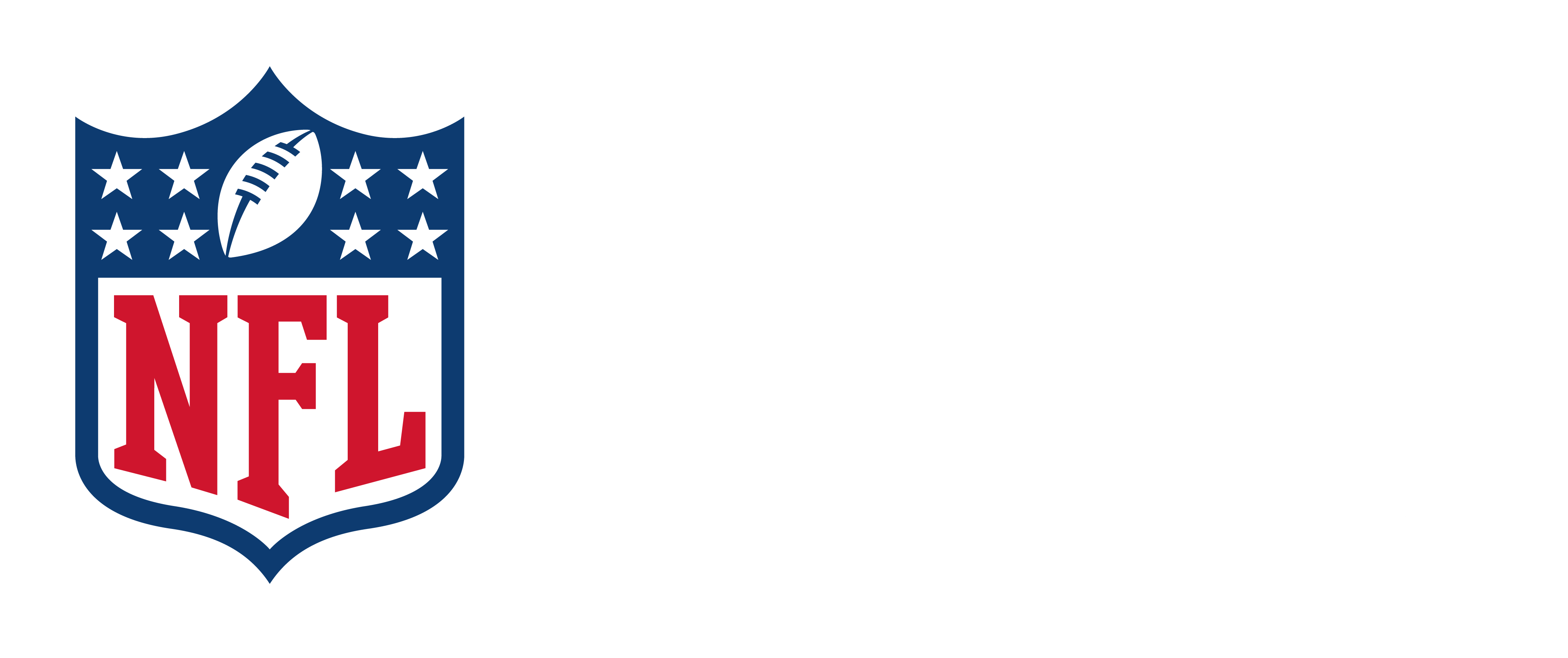The NFL hosted a media briefing on November 17, 2021, to discuss the latest COVID-19 testing data and NFL-NFLPA protocol updates.
SPEAKERS:
- Jeff Miller, NFL Executive Vice President overseeing Player Health & Safety
- Dr. Allen Sills, NFL Chief Medical Officer
TRANSCRIPT:
Dr. Allen Sills: Good afternoon, everyone. Good to be with you again. I guess I would say I miss our frequent sessions, but I haven't in one sense because it means we haven't had as much to talk about, which is a good thing. But happy to provide an update.
Just off the top, as Brian mentioned, we did send a memo out yesterday concerning some updates on our protocols. There were two primary things that motivated us to send that memo. One is that last week we did see the highest number of new COVID positive cases that we've seen in the NFL this season. That is something that we obviously track on a week-by-week basis. And it was the highest number we've seen. And that wasn't a total surprise to us because we have consistently said that our numbers in the NFL reflect what is going on in our communities around us. So, we saw more disease in a number of areas in the country that are really spiking with caseloads and so we are seeing and feeling the effect of that.
So, there is no one motivating factor. The other is approaching the Thanksgiving holiday, we know that there will be a lot of travel a lot of families getting together and a lot of mobility that we wouldn't see in a normal week. And so just like last year, we sort of prepared for that and we thought about that and we took some additional steps last year to try to mitigate the additional risk that that would confer. So those two things together prompted us to issue the memo and all of you, as Brian said, have the memo and there are really just a couple of key features in that.
One, obviously, is that the clubs will be offering testing for friends and family that are visiting over the holiday— trying again to minimize exposure outside of the facility. Secondly, we will do an additional test when clubs come back, the week after Thanksgiving. So rather than the once weekly test, there will be an additional test—so we will test on Monday and Wednesday of the week following Thanksgiving. And then thirdly, we will have a seven-day period where masks will be mandatory at all times inside the clubs for all personnel that are involved.
So those are the changes that were outlined in the memo, and again, motivated by the two things that I mentioned. I would say, just for context, you know, even though last week was the largest number of cases increase for us, we still feel like that is overall lower than what we see in society and again, I think that we are clearly seeing the positive benefits of vaccines in our population. What I mean by that is the following—because we have such a heavily vaccinated population of players, coaches and staff—first of all, we are seeing fewer cases than we would see otherwise. Secondly, those individuals that do test positive have a shorter duration of illness and it is typically a milder illness. And thirdly, we are not seeing the kind of uncontrolled spread that we saw last year when we had a case inside the building, despite the fact that we are not using masks and distancing in vaccinated people.
So, just to break that down a little bit further, for the mild illness piece, as all of you know, we do have in our protocol, the ability for people to test in, in less than 10 days if they have two negative PCR tests, 24-hours apart. They can return in less than 10 days. We are seeing that happen. Not in a majority of cases but, in a substantial group of cases. And so, again, I think that is evidence about that milder illness that we are seeing in vaccinated individuals.
And then the second thing is, I mentioned we are not seeing the type of uncontrolled spread and I will illustrate that for you in one way. I think you all of you are aware that we are doing genetic sequencing on our positive tests so we can tell where the exact strain that someone maybe carrying of the virus, and that helps us see if it spread from one person to another to another inside the facility. And we had a club that had some positive cases within the last few weeks. They actually had a total of eight over a period of time. And it turned out, that all eight of those were unrelated to each other. Eight completely different strains that came in. Which means it was not spread within the building even though we detected those cases. Those are people that got exposed outside of the facility and then tested positive in our testing. So, I think that shows that our protocols are working and doing what we designed them to do, which is to prevent the virus from spreading in an uncontrolled manner around our teams and pick up those individuals that are positive.
And I think one other very noteworthy thing that I've seen, and I'm sure some of you are aware of some recent high-profile cases of this, we are still seeing players, coaches and staff who are speaking up about symptoms and being tested, sometimes the day before and even the day of the game. And that is helping us also to identify cases and to keep them from exposing others in the team environment. So, again, we applaud those individuals that are speaking up, getting themselves tested and working with us on the protocols. So, that's a bit of a summary of where we are. Just to give you the numbers, and we can send this out. We report every two weeks the total numbers. In the last two-week period, from Oct. 31 through Nov. 13, we had 81 confirmed positive cases. That's 34 players and 47 staff, an incidence rate overall of 1.2 percent for that period of time. That's out of a testing pool of over 6,500 people. So, I'll stop there, Brian. Unless Jeff or anyone wants to add anything, and then we can turn it back to you.
QUESTION: Dr. Sills, you just alluded to the self-reporting aspect of it, how encouraged were you by – I actually have two questions – but how encouraged were you by Ben Roethlisberger's case in particular that came, reportedly, from self-reporting, and how that process was. And then the second question is about Aaron Rodgers, and how he's made the contention that some of the COVID rules are not based on science. Can you respond to that contention?
Sills: We don't ever comment on specific cases due to privacy, but I will say, again, I applaud all of our players and coaches and staff who report their symptoms and raise their hands and get a COVID test. What they are doing is protecting themselves, their family, and their team, and again, that's a tough step to take, particularly in close proximity to a game, the day before or the day of the game. But I think it reflects the fact that players, coaches and staff really understand the obligation that we all have to each other. That's what's so unique about this pandemic, is that this is a community problem, and so each of our own choices and behaviors affects everyone else who comes across our paths. So, I just applaud and salute those individuals who are making those decisions. I think it reflects a very mature, thoughtful and responsible leadership role and it's what we want to encourage everybody to do and, frankly, it's what we all should do. Every one of us in society should be taking that same approach to keeping our entire community safe, by choosing behaviors and interventions that can reduce our own risk and reduce our risk to others.
With regard to our protocols, we've been very consistent. First of all, they're things that we decide collectively with the Players Association. They're always based on science, the science as best as we understand it from public health, but also our own data. We're constantly looking at our own data in every way possible to see where we might still be vulnerable and what parts of our protocols, we think are particularly effective. So, we're very comfortable that what we've put in place is being driven by our data and is working as I've said before. I know some people see cases that are positive cases and think, 'Well, if there are positive cases, the vaccines must not be working.' We have to always be reminded that the vaccines were designed to prevent serious illness, hospitalization and death, and they continue to do an outstanding job of that. But in addition to that, unvaccinated players have consistently tested positive at a much higher rate than vaccinated players throughout the entire season, and that's been true since we started back in July. And, as I said, it's clear that the vaccines are providing substantial benefit, milder illness, shorter duration and a lack of spread around the building.
QUESTION: Can you tell me how many players right now, or what percentage of players have gotten the booster shot?
Sills: I can't, because we're still gathering that data and obviously that's happening in real time. We're trying to gather that data. Let me mention one other thing we are doing in conjunction with that. We just launched this week an antibody study of tier one, tier two staff around the league. Which is we're offering to have people voluntarily get their COVID antibodies, levels checked, and then they also provide some baseline information about when they got vaccinated, what vaccine, their COVID history and some other medical information. And we think that's going to be incredibly important data for us. We're collecting it this week. We should have it fairly compiled within the next 10 days or so and that will give us a really great snapshot of one measure of immunity in our NFL community and I think it's going to help us as we provide recommendations about boosters. We're still gathering that data, to know who has gotten a booster shot.
QUESTION: Are you recommending the booster now or have you not taken a stance on that?
Sills: We've sent information to our clubs. We're following the latest public health guidance which is there are certain individuals strongly should receive a booster and of course that's based on age, medical comorbidities and history and so forth. We're absolutely in line with the public health authorities. I think, as I mentioned a minute ago, this antibody data is going to help us understand in a snapshot format, where we are as a league. If it suggests to us that we have substantial vulnerability, then I think we'll be able to provide stronger recommendations.
QUESTION: I wanted to follow up on the boosters. You said that you're in line with the public health authorities on the boosters. At this point, it appears some states are moving ahead of the federal recommendations on boosters. How does that complicate your stance and approach to this when you have clubs in some states that have gone beyond the federal guidelines on boosters?
Sills: I think, it reflects the fact that science is not settled on boosters. We still have a lot to learn about, again, who needs it, when do you need it, what's the optimal timing, what's the optimal combination so that's why you're seeing varying regulation. We're staying in close contact with public health authorizes with our own infectious disease expert advisers and again, looking internally at our data so we can provide the best recommendations. We're certainly not discouraging boosters, we're encouraging everyone to discuss that with their health care providers, whether it's their team's providers or their own physician, and for anyone that qualifies and is interested, we want them to get a booster, but I think we'll be able to make more-informed recommendations as we get a little more of this data and the public health recommendations coalesce.
QUESTION: I wanted to follow up where you talked about the protocol for testing back in in less than 10 days. You said it was a substantial group of cases, do you have more numbers of that and the frequency of that? And also, I wanted to see if you had numbers on the positivity rate for unvaccinated players compared to vaccinated?
Sills: Let me get you exact figures on both of those. I don't want to misspeak of the number that's testing out early, but when I say it's substantial, it's well into the double-digits, I mean it's less than half, but let's get you the updated information because that changes all the time. We did have, for example, just anecdotally, four players yesterday that tested back in less than 10 days. This is a frequent, almost daily occurrence for us and I think that's important for context for that.
Your other question was about vaccinated versus unvaccinated, we can get you the rates on that. What I can tell you is it has consistently been above. It fluctuates week-by-week and I'm going to give you a long answer to a short question, the pool of unvaccinated people is fairly small and so when you have positive cases, the numbers can bounce around quite a bit, but it has consistently been every single week we've looked at it, that unvaccinated players have test positive at a higher rate than vaccinated players. That's been consistent in all of our snapshots.
QUESTION: Is the league offering to assist teams with the enforcement of the protocols? How much is that influenced by what happened with the Packers?
Jeff Miller: It wasn't. Good question, though. If you remember back to this time last year, we were all reminiscing about last year and how Thanksgiving was a time that we began to ramp up a lot of the protocols and, given the increase in the number of cases, take a number of additional steps. Some of those were support for the clubs, and that's something we revisited even in training camp this year when we went to a number of clubs, including those who had lower vaccination rates than others, to say, "hey, do you need any assistance here in protocol enforcement?" especially in areas where they may be at greater risk given the lower vaccination rates. A number of clubs took us up on that offer. We've been happy to help all throughout the season. We just wanted to reiterate, in the memo that we put out now, based in part on our experience last year and this time of year sort of being an important inflection point, like it was last year, as well as from the experiences we had previously this year, with the clubs and the ability to enforce some of the protocols.












